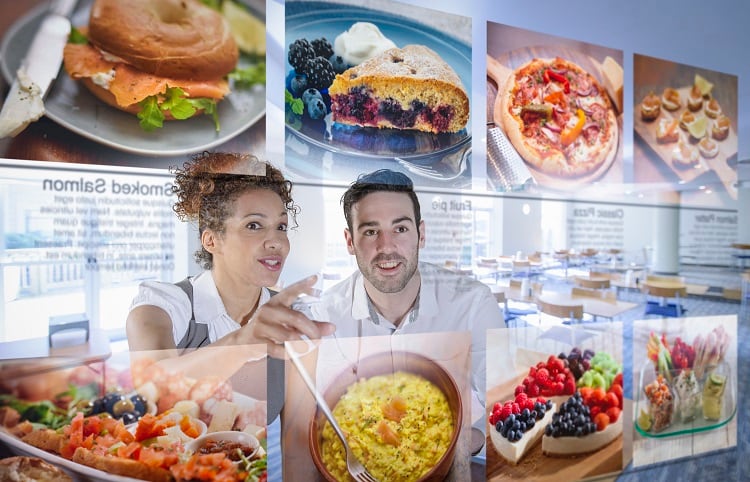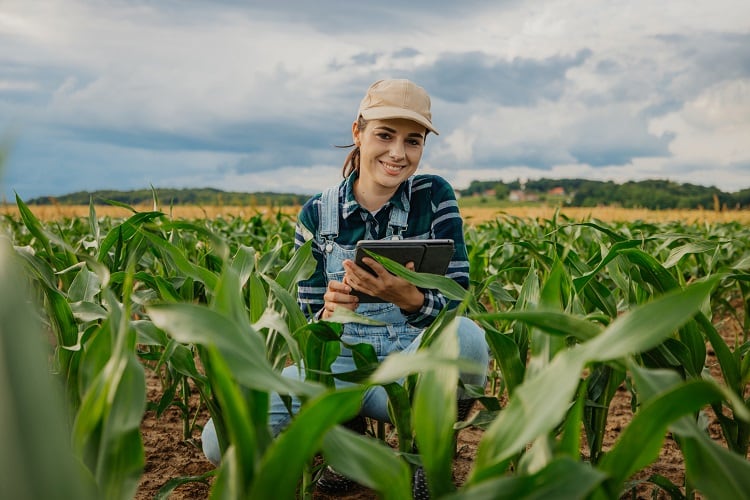With a combination of fear, trepidation and excitement, the world is finally getting to grips with artificial intelligence (AI). Versatile and powerful, AI, in its various iterations, can optimise a range of industries and amplify a plethora of skills.
The food industry is, of course, not letting the opportunities pass it by. AI has so far been used to boost research, streamline NPD, analyse consumer trends, and much else besides.
Yet consumer acceptance isn’t always guaranteed, especially in such a new area.
A survey of UK and US consumers by Ingredient Communications found that acceptance of AI in food is generally high, although consumers feel that in certain aspects it should be controlled.
Consumers are positive about AI in food
Overall, the survey found that 42% of consumers surveyed had a positive view of AI in the design and production of food and beverage, compared to 27% with a negative view. This is only slightly lower than the 52% who thought AI would be a positive overall, compared to 20% who believed it would be negative.
Young people are leading the way with this positivity - 65% of the 18-27 range were positive about AI in food, compared to only 25% of those aged 79+.
Higher earners also had a significantly more positive outlook than those earning less, with 65% of those with an annual household income of more than £100,000 (€120,000) viewing AI in food positively, compared with only 42% of those with an annual income of less than £10,000 (€12,000).
In the UK, only 39% of consumers thought that AI in food was a positive, compared with 45% in the US.
There were some areas where consumers had a more stridently positive view, however.
For example, 53% of respondents had a positive view of the use of AI in food safety, with only 19% having a negative view. This was fairly consistent between the UK and US, although as previously mentioned, the younger and higher earning had a more positive view.
On whether food made by AI is safe to consume, there is general positivity, with 45% believing it is, compared to 20% disagreeing, but it’s far from conclusive. For those aged 79+, it was exactly split, with 25% of respondents on both sides of the divide.
Consumers are also positive about using AI for diets. Given the advent of the functional food trend, this is particularly relevant.
For example, 48% of consumers were willing to let AI analyse their genetic makeup to make nutrition recommendations, compared to 29% who were unwilling.
Similarly, 43% of consumers believed that AI could be trusted to make diet and nutrition decisions in their best interest, compared to 27% who thought it couldn’t.
What are major companies doing in AI?
Many of the major food and beverage manufactuers are delving into AI.
AI is proving a boon for efficiency. Danone recently partnered with Microsoft on AI, using it to improve operational efficiency in supply chain and logistics, as well as to boost manufacturing. French cheese manufactuer Bel Group is doing something similar, as are retailers such as Macy's, Marks and Spencer and Ocado.
Multinational Unilever is using AI to optimise forecasting and explore trends.
Bel Group is also using AI to come up with recipes, as is the Coca-Cola Company with products such as Y3000, and the brand Maltesers in partnership with Google AI. AI is also being used for the development of beers by some breweries, such as St Austell in the UK and Sapporo in Japan.
In confectionary, AI is particularly strong, and is expected to grow by 25% each year. Brands such as KitKat and Hershey's are using AI in marketing campaigns, with the latter using it to ensure more ads were sent to areas where sales were lower. Ingredients company Ofi uses AI to predict cocoa flavour trends in different regions.
Finally, some companies, such as Nestlé, are using AI to automate customer service.
However, in the UK, businesses are risk averse and cautious adopting AI, according to the Policy Exchange's Strengthening the UK's Food Security report. This is due to reasons such as lack of capital and relevant skills in-house. According to the report, 40% of industry stakeholders don't use any sophisticated digital technology at all.
Rules around AI
Despite general positivity surrounding AI, many consumers are strongly in favour of safeguards around it.
For example, an overwhelming 83% of respondents believe that food created with AI should say so on the label, compared to 4% who don’t.
This preference is consistent across all demographics, including nationality, age, gender and earnings.
Most consumers also believe that food created using AI should not describe itself as natural, with 65% agreeing that it should not, and 11% disagreeing. This is also consistent across the different demographics.
Moreover, 78% of consumers believe that governments should regulate the way food companies can use AI products, compared to just 7% who don’t. Once again, this is consistent among all demographics.
Overwhelmingly, consumers also believed that products that had used AI to save costs should be cheaper (79% vs 4%).
The trend seems to be that, in the case of regulations or rules governing AI in food, there is far less division between demographics and greater agreement.
Resistance remains
Despite the openness seen in the survey, 29% of respondents said that knowledge that a food had been made with the help of AI would make them less likely to buy it, with 26% saying they’d be more likely.
The young, however, are still more positive than negative here, with 52% saying they would be more likely compared to only 16% saying they’d be less likely.





